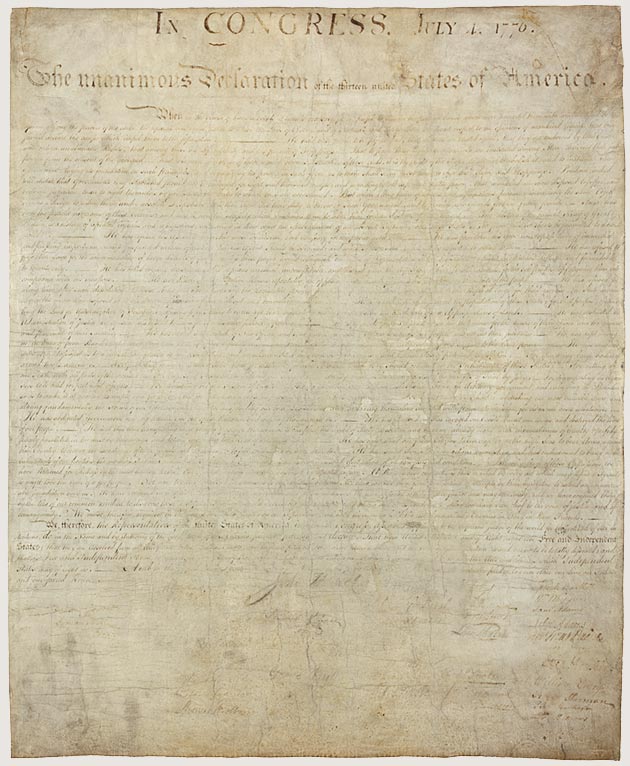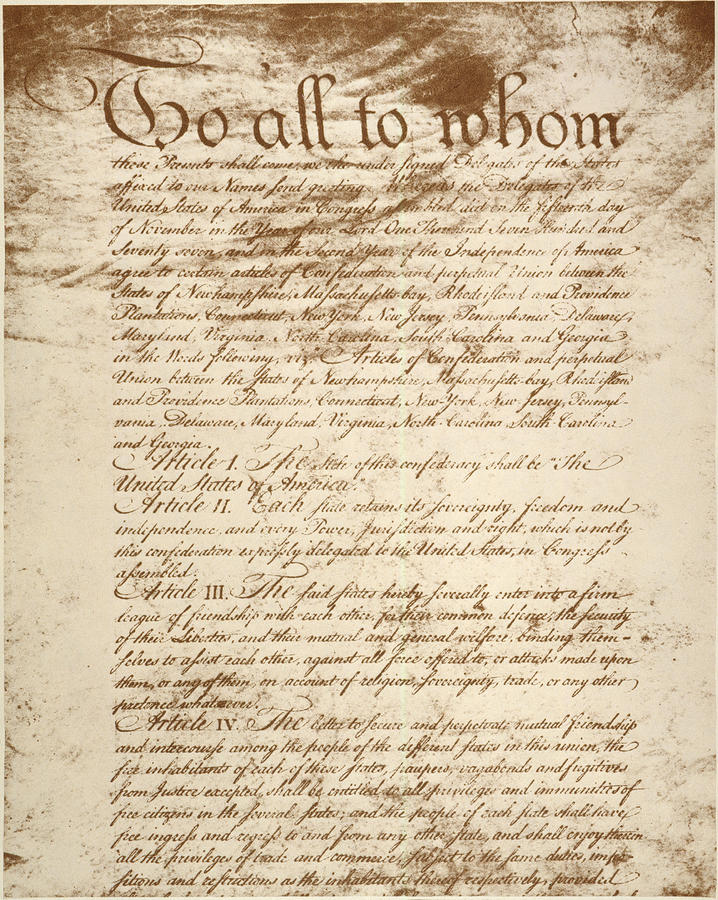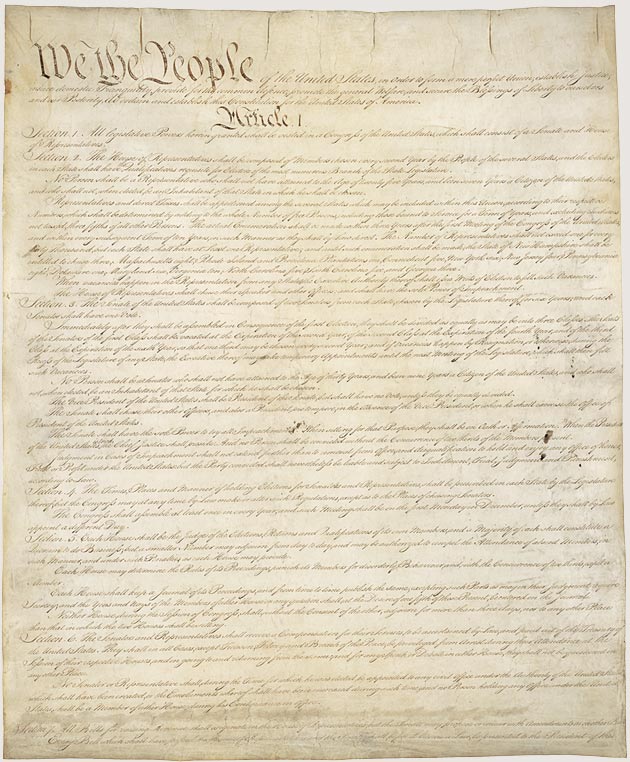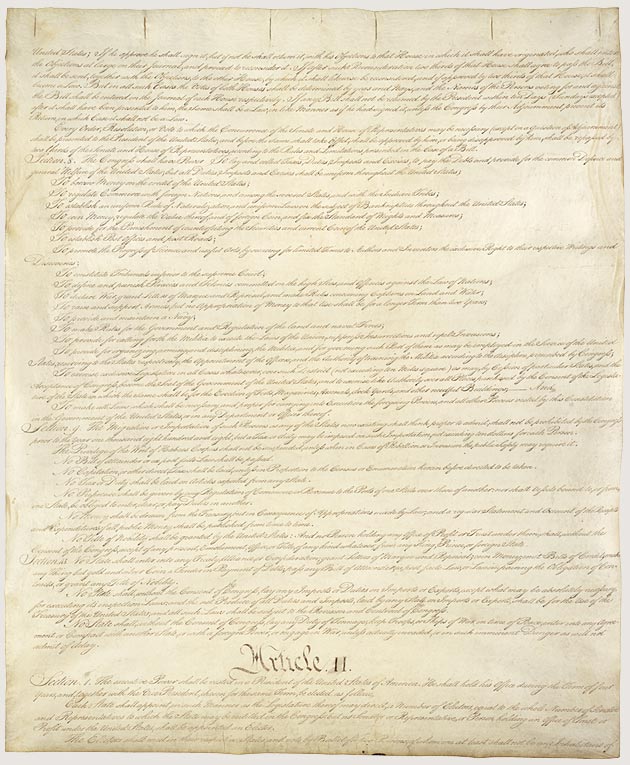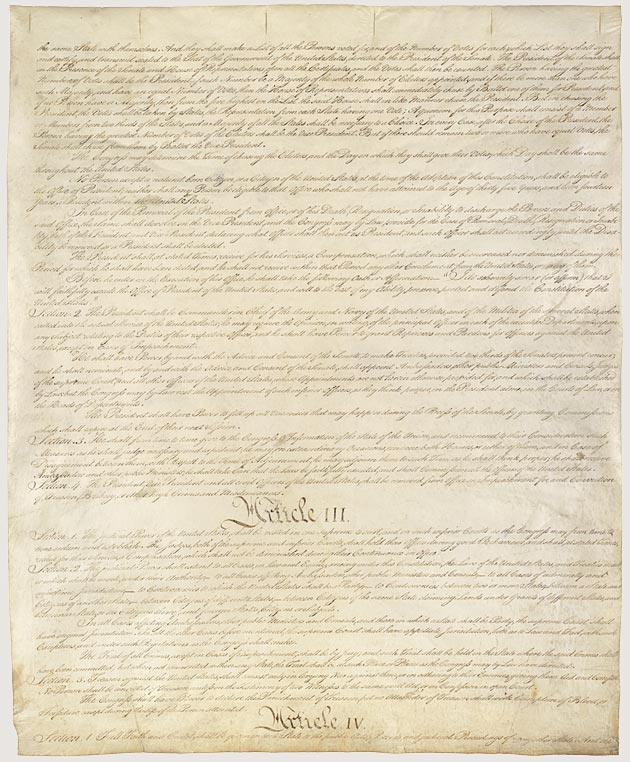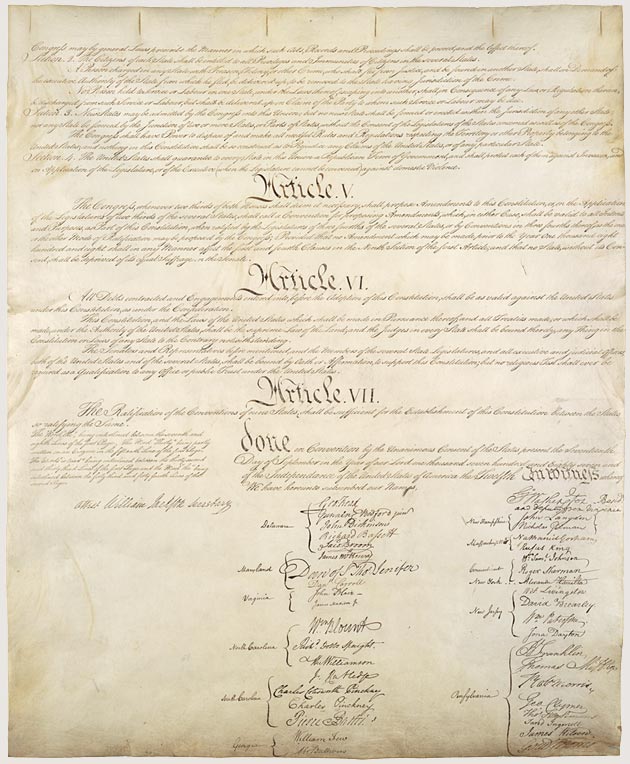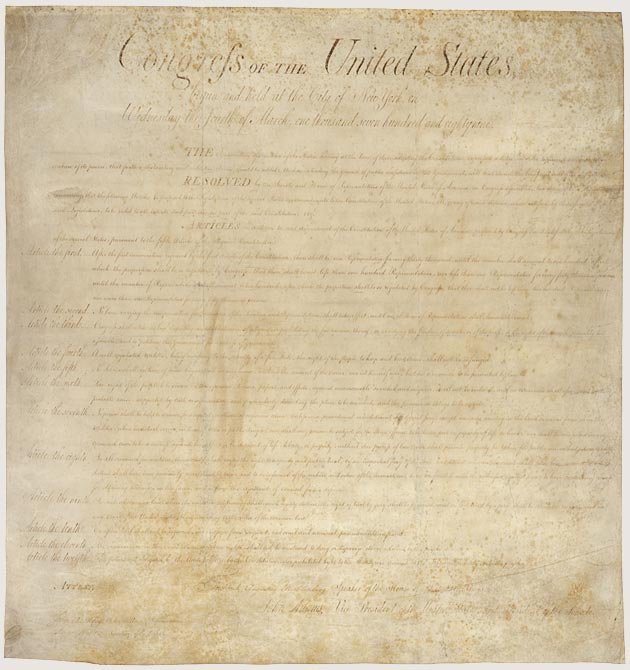For my first constitutional law class, I provide a foundation our entire system of government by walking through the text of the Declaration of Independence, the Articles of Confederation, and the Constitution. I cover every section of the United States, and almost all of the clauses. It is a lot of material in two hours, but it is probably my favorite class of the year. Enjoy! And, as tradition, I give every student a Pocket Constitution on the condition that they bring it to every class!
ConLaw Class 1 – Our Founding Documents
January 15th, 2015The lecture notes are here. The live chat is here.
Our Founding Documents
- The Declaration of Independence
- The Articles of Confederation (pp. 1633-1638)
- The Constitution of the United States (pp. 1-15).
- The Adoption of the Constitution (19-27).
- Six broad themes of the Constitution (35-39).
- Map of the Constitution (39-42).
Note: Read these documents in their entirety. They’re not long. And no one should graduate law school without reading them at least once.
This is the Declaration of Independence (July 4, 1776).
This is the first page of the Articles of Confederation (Ratified in 1781).
These are the four pages of the Constitution of the United States of America. The Constitution was proposed on September 17, 1787, and ratified on June 21, 1788 with the ratification of New Hampshire, the 9th State to join the Union.
These are the first Ten Amendments to the Constitution, proposed in 1789 and ratified in 1791 (the phrase “The Bill of Rights” only came into common parlance following the Civil War).
